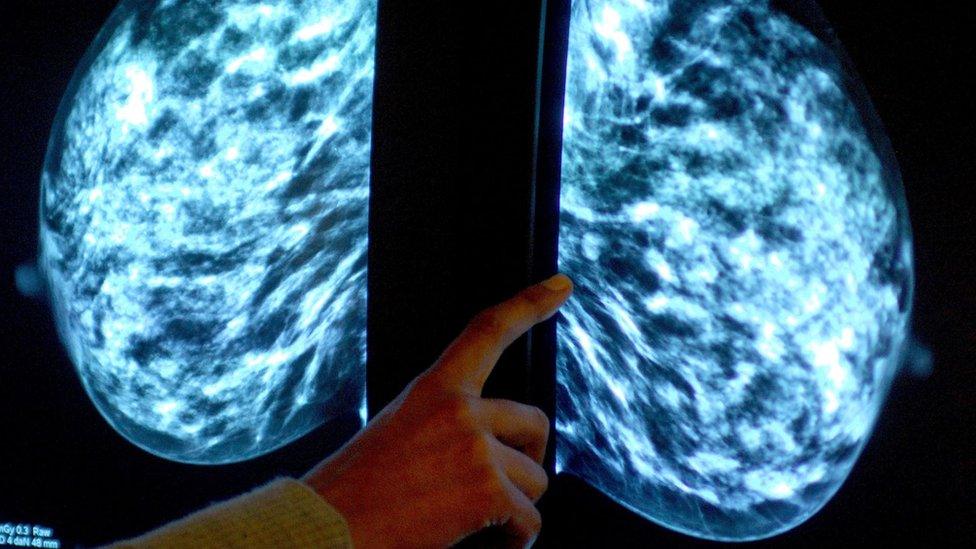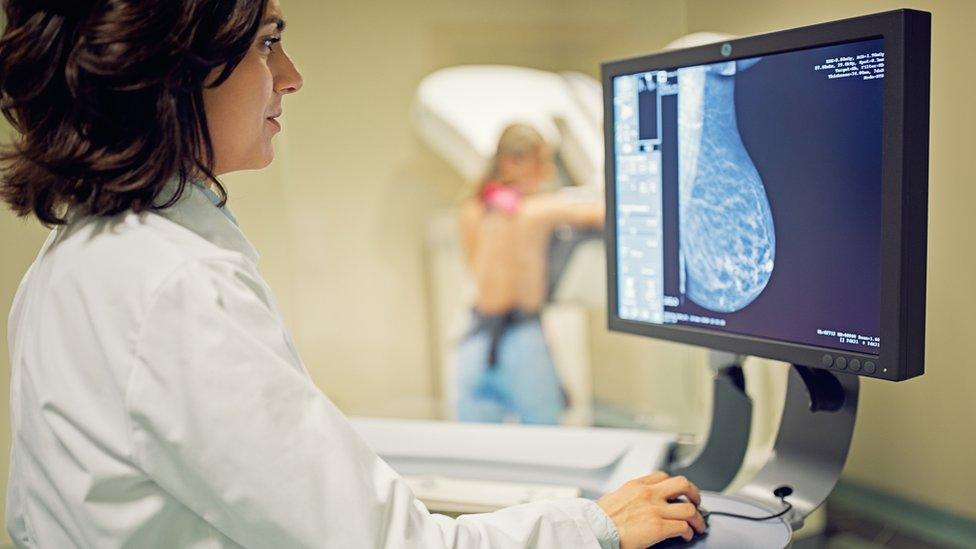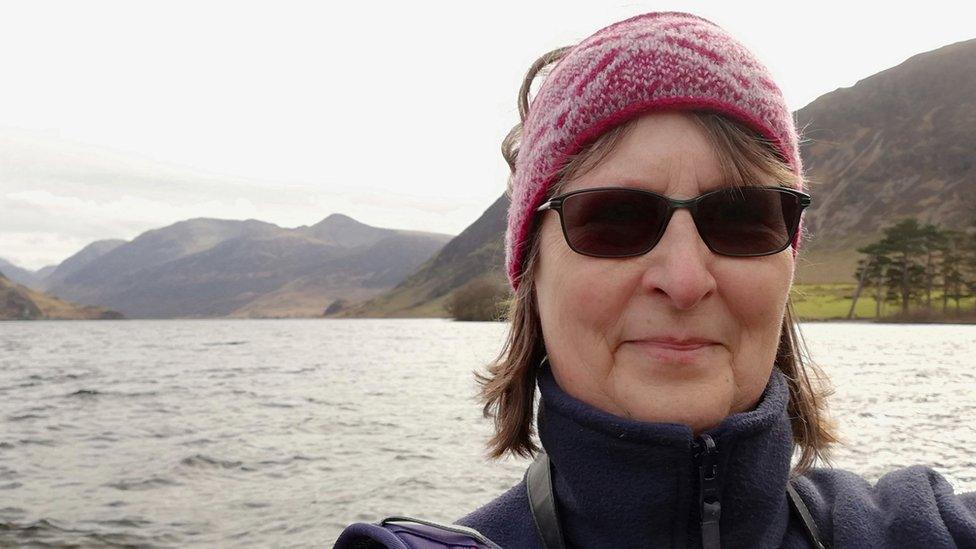Breast cancer patients more at risk of second illness, study says
- Published

The University of Cambridge studied the records of about 600,000 men and women in England (stock photo)
Survivors of breast cancer are at "significantly" higher risk of developing second cancers, a study from the University of Cambridge has found.
Researchers studied the records of 600,000 patients in England who were diagnosed with breast cancer between 1995 and 2019.
People living in areas of greater socioeconomic deprivation were shown to be at higher risk.
The study author said this was the largest study of its kind.
Previously published research suggested that women and men who survived breast cancer were at a 24% and 27% greater risk of a non-breast second primary cancer than the wider population but it was not known why, the study said.
About 56,000 people in the UK are diagnosed each year and more than 99% have been women - making it the most commonly diagnosed cancer.
Researchers analysed data from more than 580,000 females and more than 3,500 males.
Females from the most socioeconomically deprived backgrounds were at 35% greater risk of a second primary cancer compared with females from the least deprived backgrounds.
The study said this may be because smoking, obesity and alcohol consumption - established risk factors for various cancers - were more common among more deprived groups.
Prof Antonis Antoniou from the department of public health and primary care at the University of Cambridge, the study's senior author, said: "This is the largest study to date to look at the risk in breast cancer survivors of developing a second cancer. "
The study was funded by Cancer Research UK with support from the National Institute for Health and Care Research Cambridge Biomedical Research Centre.

Follow East of England news on Facebook, external, Instagram, external and X, external. Got a story? Email eastofenglandnews@bbc.co.uk, external or WhatsApp 0800 169 1830
Related topics
- Published26 March 2024
- Published2 February 2024

- Published13 June 2023
